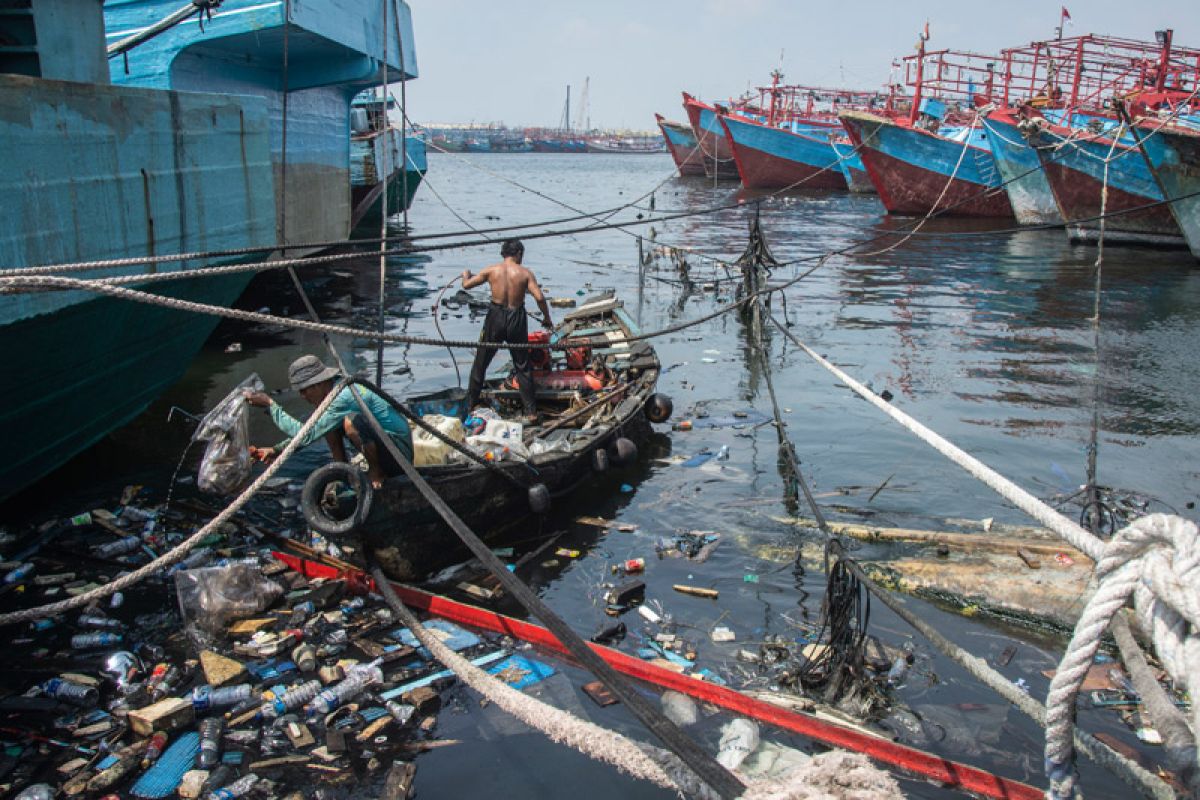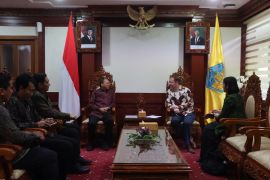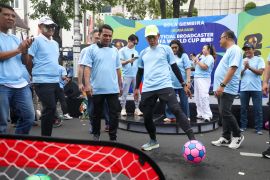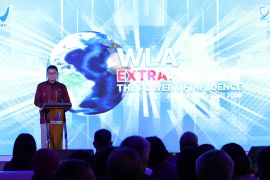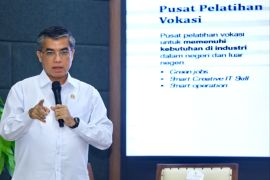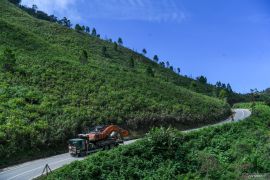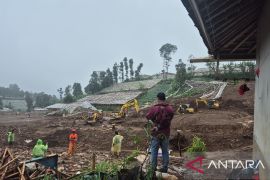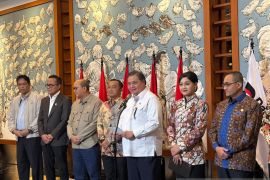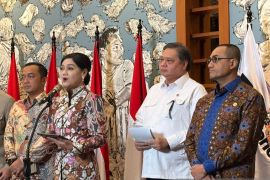"It is our collective responsibility to ensure that plastic waste does not end up in the ocean," Minister of Marine Affairs and Fisheries Susi Pudjiastuti said.Jakarta (ANTARA News) - The oceans in Indonesia, known for their beauty and abundant wealth, continue to face the deadliest threats to their existence in the form of plastic waste pollution.
Hence, the "Movement for a Healthy and Clean Indonesian Ocean," launched by the Ministry of Marine Affairs and Fisheries (KKP), needs to be intensified.
The threats posed due to plastic waste polluting the Indonesian waters remain high, so various sections of society need to come together to tackle the problem.
Among the key hurdles faced is that Indonesia is one of the largest contributors of plastic waste, including the still rampant destructive fishing practices that have destroyed marine ecosystems.
During a visit to numerous areas in Indonesia, KKP Minister Susi Pudjiastuti claimed to have found several fishermen using large amounts of potassium cyanide to catch fish.
The use of only a gram of potassium cyanide can destroy about six square meters of marine ecosystems, according to the minister.
To this end, maintaining Indonesia`s seas is not the sole task of the government but also that of every citizen, as the oceans are the future of the nation.
The organization of "Pandu Laut Nusantara" was earlier launched, and all its members have vowed to collaborate in an attempt to protect the seas in Indonesia.
The members are also expected to work along with the surrounding communities and national fisheries stakeholders.
The Pandu Laut Nusantara Organization will serve as a bridge between the community and government to jointly maintain the sustainability of the seas.
Furthermore, the KKP Ministry will encourage world leaders to contribute to maintaining the conditions of the global ocean ecosystem.
At the 5th Our Ocean Conference (OOC) to be held on October 29-30, 2018, the KKP will encourage world leaders to participate in maintaining the global ocean ecosystem, according to KKP Director General of Sea Spaces Management Brahmantya Satyamurti Poerwadi.
"At the conference, we will encourage world leaders to commit to safeguarding our oceans and convincing the world that the oceans also have the right to be protected," Poerwadi remarked in a press statement recently.
According to Poerwadi, the OOC 2018 will offer the necessary momentum to demonstrate to the world about Indonesia`s maritime leadership.
Minister Pudjiastuti reiterated that plastic waste had become a serious threat to the Indonesian and global waters, so various parties must cooperate to overcome such problems.
"It is our collective responsibility to ensure that plastic waste does not end up in the ocean," the KKP minister remarked here recently.
She noted that the existence of illegal fishing vessels is not the only threat to Indonesia`s marine resources, but plastic waste had also become one of the main threats today.
"If the plastic waste or `micro plastic` is eaten by fish, and we consume the fish, then what is the health value for us, and what is the value of the fish?" she questioned.
The World Bank will run the Indonesia Oceans Multi Donor Trust Fund project that provides strategic support to the entire maritime agenda of Indonesia.
The support encompasses improvements to Indonesia`s marine planning, coordination, policy, and funding strategy.
The Indonesian government had earlier committed to reducing plastic waste in its maritime areas, Expert Staff for Marine Ecology and Marine Resources of the Maritime Affairs and Fisheries Minister Aryo Hanggono stated.
The government will reduce plastic waste up to 70 percent by 2025, and currently, a draft of the presidential regulation on the management of plastic waste at sea was being formulated to ensure coordination between the central and local governments.
He noted that banana peels took two weeks to decompose, while plastic bags took 10-20 years to decompose, and plastic bottles took hundreds of years to decompose.
In addition, several studies had indicated that if no significant changes were brought about, the ratio of plastic to fish in the oceans is expected to reach three is to one by 2025, and the oceans will contain more plastic than fish by 2050.
The fisheries and maritime sector has now become Indonesia`s prime source of economic income.
However, sustainability will not be achieved unless the sector is really preserved.
President Jokowi Widodo earlier remarked that Indonesia had to take serious measures to exploit its maritime resources, which he believes were the future of the country`s economy.
He said only a small part of the maritime resources worth Rp17 quadrillion (US$1.28 trillion) annually could be exploited.
"Maritime resources are the key to improving the people`s welfare and ensuring social justice in the country," the president added.
It is now time for the Government of Indonesia to work towards changing the community`s behavior in its efforts to solve the problem of plastic waste that leads to land and sea pollution.
However, the successful reduction of plastic waste in sea and on land, as part of the climate change control measures, is deemed quite dependent on changes in community behavior.
(O001/INE)
(T.O001/A/KR-BSR/A/H-YH)
Reporter: Otniel Tamindael
Editor: Heru Purwanto
Copyright © ANTARA 2018
